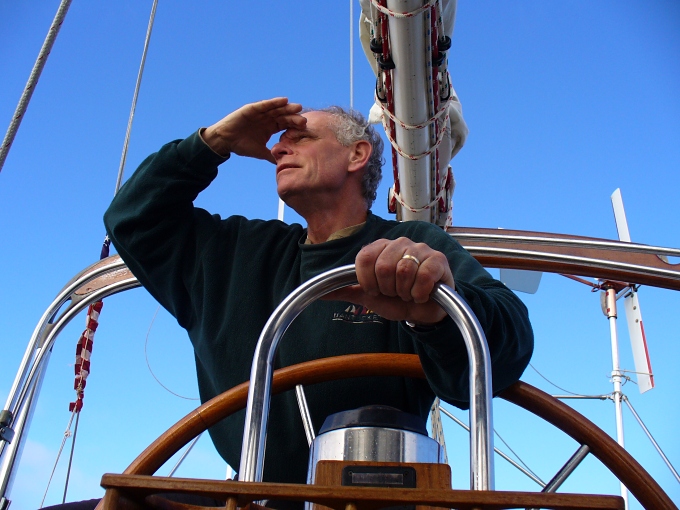FAQ - What's your watch schedule? What do you do on long passages? How do you fill the time?
/First of all, whenever Nine of Cups is in motion, someone is on watch. One of us is either at the helm, in the cockpit or, in inclement weather, sitting at the nav station watching the radar. Even when the weather's bad and we are in the middle of an empty ocean, we still pop our heads up every 10-15 minutes to take a took around. In bad weather, this is the uncomfortable price you pay for traveling by sailboat. In fine weather, this is a perk. Unless we're on an overnight passage or in heavy shipping traffic, this is not a difficult task. You “watch” and make sure you don't hit anything, nothing hits you and Cups is doing her thing. We're usually both topside enjoying the view anyway.
There are as many different watch schedules as there are sailors out there, it seems. Nothing is “standard”. We've heard of one fellow who can't sleep during the day, so his partner stands watch all night long and sleeps while he's on watch all day. That certainly wouldn't work for us, but it works for them. We tried four hour watches, but found the middle hours interminable. We tried two hour watches, but the off-watch person doesn't get enough sleep. So, over the years, we've settled on three on-three off and this works for us. Rarely do we have an extra crew member aboard, but when we do it makes watches much easier.
So, what does one do on “watch” during the night to pass the time when there's nothing going on? David has his own schedule. The first hour he plans his second hour meal. The second hour, he prepares and eats his meal. The third hour, he cleans up and gets ready for bed. Some folks read; others watch movies or play video games on their laptops. I don't usually eat, read or watch movies during the night … I sing. Oh, yes, I can sing to my heart's content as loudly as I please. I've got a whole repertoire to go through. I don't sing particularly well, but David can't hear me below and the fish don't seem to mind. On beautiful clear nights, when the sky is so full of stars there's not room for even one more, we can sit bedazzled by the wonder of it all. I've been known to talk to the moon at length on night watches. She rarely answers.
Of course, there are a few chores to do as well. We log our position, speed, etc. on the hour. We check radar and AIS regularly. We make sure we're on course or at least the best course for taking advantage of the winds and currents. One thing we do not do is sleep on watch. Many folks do. Obviously, that's how single-handed sailors sail. They set radar and AIS alarms and nod off. We feel more comfortable with one of us awake and alert and actually “watching” during our watch. We used to insist that our ship's cat, Jelly, keep watch, but she was unreliable.
Overnight passages and especially long passages introduce a new element to standing watch. Daylight hours are easy. Visibility is usually good. We're diurnal creatures and function best during the day. Night watches can be tiresome. You're by yourself, while your partner sleeps. Visibility is markedly decreased by the darkness. Radar works well, as does AIS, for identifying land masses and larger boats out there. But sometimes there's a lot of boat traffic, fast-moving ferry boats sneak up on you and you're not sure of their route or you don't know where those fishing boats ahead have laid their nets. The positive thing about adrenaline rushes is that they keep you awake.
The worst passages for us are the 2-3 day variety. We're tired all the time, perhaps seasick and then we arrive exhausted. We haven't seen each other because one of us is always sleeping. Longer passages allow us to get into the groove. Our bodies become accustomed to the odd sleep pattern rather quickly … for us 3-4 days. After that, we sleep soundly during our off-watch hours at night and only nap occasionally during the day. Not sleeping together at night is a bummer, but something to look forward to when we reach port.
So, what's your watch schedule and how do you fill the time?




